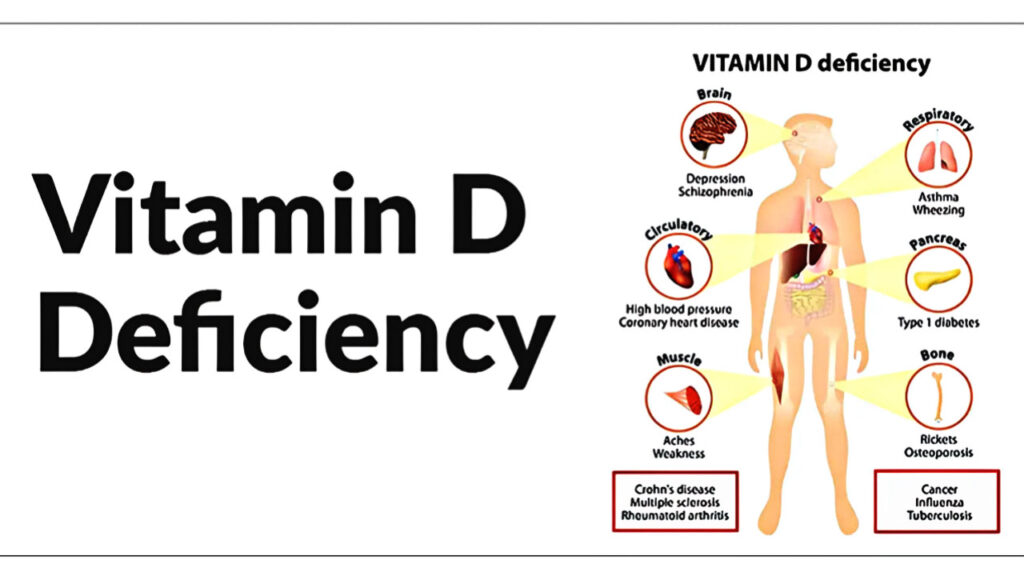Vitamin
Vitamin D is a vital nutrient that plays a crucial role in maintaining our overall health. Often referred to as the “sunshine vitamin,” it is produced by the body when the skin is exposed to sunlight. However, many people around the world suffer from vitamin D deficiency due to limited sun exposure, poor diet, or certain medical conditions. The lack of sufficient vitamin D can lead to a range of health issues, some of which may not be immediately obvious. In this article, we will explore the common signs of vitamin D deficiency that you should be aware of.

1. Fatigue and Tiredness
One of the most common signs of vitamin D deficiency is persistent fatigue. Vitamin D plays a role in energy production, and when levels are low, the body may struggle to perform daily tasks. If you feel tired despite getting enough sleep, it could be a signal that your vitamin D levels are insufficient. People with chronic fatigue due to vitamin D deficiency may also experience difficulty concentrating and a general sense of lethargy.
2. Bone Pain and Weakness
Vitamin D is essential for calcium absorption, which is critical for bone health. A deficiency in vitamin D can lead to weakened bones, resulting in bone pain or tenderness. This can be particularly noticeable in the lower back, hips, or legs. Over time, prolonged deficiency can lead to conditions such as osteomalacia (softening of the bones) or osteoporosis, both of which make bones more susceptible to fractures.
3. Muscle Weakness and Pain
Just as vitamin D affects bone health, it also plays a significant role in maintaining muscle strength. Low levels of vitamin D can lead to muscle weakness, aches, and cramps. This is especially common in the elderly, who may experience difficulty in climbing stairs or rising from a seated position. Muscle weakness due to vitamin D deficiency can significantly impact mobility and overall quality of life.
4. Frequent Illness or Infections
Vitamin D is essential for the proper functioning of the immune system. It helps the body fight off harmful pathogens and infections. If you find that you are frequently sick or have a weakened immune response to illnesses like the flu or common cold, it could be due to insufficient vitamin D levels. Research has shown that adequate vitamin D intake can help reduce the risk of respiratory infections and other illnesses.
5. Depression and Mood Swings
There is growing evidence linking vitamin D deficiency to mood disorders such as depression and anxiety. Vitamin D receptors are present in areas of the brain responsible for mood regulation. A lack of this vitamin can disrupt the balance of certain neurotransmitters, which may lead to feelings of sadness, irritability, and even depression. If you’re experiencing unexplained mood swings or a general feeling of low spirits, it might be worth getting your vitamin D levels checked.

6. Hair Loss
Vitamin D deficiency has also been linked to hair loss, particularly in women. A condition known as alopecia areata, which causes hair to fall out in patches, has been associated with low vitamin D levels. While hair loss can be caused by a variety of factors, including stress and genetics, a deficiency in vitamin D can exacerbate this condition, leading to more significant hair thinning or shedding.
7. Slow Wound Healing
If you notice that cuts, bruises, or surgical wounds are taking longer to heal than usual, this could be a sign of a vitamin D deficiency. Vitamin D plays a role in regulating growth factors that help wounds heal. A deficiency in this vital nutrient can result in slower recovery times and an increased risk of infection in wounds.
8. Changes in Appetite and Weight Gain
Some studies suggest that vitamin D may have an impact on appetite regulation and weight management. A deficiency could lead to increased cravings for comfort foods and difficulty in losing weight. While more research is needed to fully understand this relationship, some people with low vitamin D levels report experiencing increased hunger or a slower metabolism, which can contribute to weight gain.
Vitamin D plays an essential role in a range of physiological functions, from supporting bone and immune health to regulating mood and muscle strength. If you are experiencing any of the signs mentioned above, it’s important to consult with a healthcare provider to determine whether a vitamin D deficiency could be the cause. Fortunately, vitamin D deficiency can often be corrected through sunlight exposure, dietary changes, or supplementation. Maintaining optimal levels of vitamin D is key to promoting overall health and well being.





